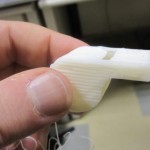What would you do with $63,900,000.00? That is a question Keith Edwards is asking. Edwards is a former employee of J.P. Morgan Chase. In January 2013, Edwards filed a sealed complaint in a Manhattan federal court accusing banking giant J.P. Morgan of certifying bad home mortgage loans to both the Federal Housing Administration and the Department of Veterans Affairs.
Edwards claimed that both J.P. Morgan Chase Bank and its predecessor, Chase Manhattan Mortgage Corp misled the FHA and VA by certifying loans that didn’t qualify. Both banks were direct endorsers meaning they could write loans that would later be backed by the government. As direct endorsement lenders, the banks were responsible for all aspects of the mortgage application, property analysis and underwriting. That means they were required to properly evaluate each potential borrower’s credit worthiness.
After filing his suit, the Justice Department intervened and agreed that the bank had written “thousands” of loans in which required documents were missing (pay stubs, W-2’s), asset and income information failed to match (pay stubs didn’t match the income borrowers claimed on their applications) and in some refinance cases, the borrowers were already delinquent on their existing loans and thus not eligible.
Inconsistent or bad information on loan applications often means a much a higher loan delinquency rate. When a federally insured loan defaults, taxpayers are left holding the bag.
Ultimately, the government resolved the suit for $614 million dollars and promises by the bank to institute new lending safeguards. For his efforts, the court awarded Edwards almost $64 million. The normal awards in these cases is often 20% of the recovery, although we are pretty sure that Edwards isn’t complaining.
Edwards filed his suit under the federal False Claims Act. That law allows whistleblowers to receive up to 30% of whatever the government collects from the defendants. In order to bring a whistleblower lawsuit, one must have original source information about fraud involving a government program or funds. Since FHA and VA mortgages are backed by the government, mortgage fraud cases often qualify. Assuming the lender is a federally insured bank, there may also be the opportunity to qualify for an additional cash award under the Financial Institutions Reform Recovery and Enforcement Act – FIRREA.
If you believe you have a potential whistleblower claim, make sure that you first find a great whistleblower lawyer. The right attorney can often mean the difference between the government not taking your case and a multimillion dollar whistleblower award.
Whistleblower cases are not limited to mortgage fraud. Almost any fraud by a bank may be eligible as is Medicare fraud and fraud involving government construction projects, defense spending and government contracting. Many states have similar laws as well. (Presently we are also seeking cases involving mortgage servicers.)
The whistleblower lawyers at Mahany & Ertl represent the whistleblower in one of the largest pending false claims act case in the nation, HUD’s $2.4 billion lawsuit against Allied Home Mortgage. For more information, contact attorney Brian Mahany at or by telephone at (direct). Inquiries kept confidential.
(Whistleblower photo courtesy of Dave Winer – scriptingnews)


